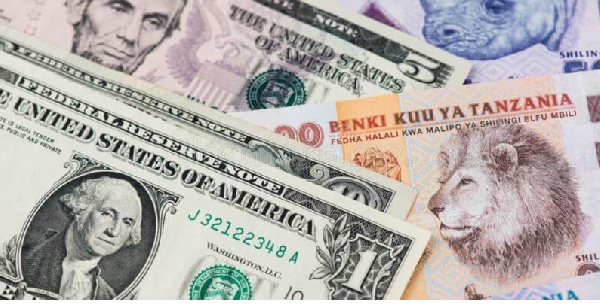Tanzanian shilling hits all-time low against dollar

The Central Bank of Tanzania (BoT)’s indicative exchange rates as of August 16, 2023, show the country’s shilling has hit a new record low of an average of 2428.7 against the dollar, setting up citizens for more expensive imports and debt servicing distress.
Experts say that such an unpredictable shilling means importers will be spending more on bringing in goods as raw materials for factories.
“The results of what is going on will begin to show up through the rise in the cost of inputs for firms, which in turn will pass on the additional expenses to consumers,” said Dr Jane Buberwa, an economist based in Dar es Salaam.
It is however not only Tanzania that was at this dollar-shilling hullabaloo; according to Dr Buberwa, most sub-Saharan African currencies continue to weaken against the US dollar, circulating inflationary pressures across the continent as import prices keep on surging.
“With the weakening of our shilling against the dollar, it’s just a blink of an eye, and local prices will keep on surging, including essential items like food, most of which are imported,” she noted.
Mr. Aziz Rashid, assistant lecturer on Banking and International currency at Ardhi University, said due to the current situation, the economy of people in a country that imports more than it produces risks deterioration due to high product prices.
“If this situation continues at this pace, it will lead to imported inflation, which is a large increase in the price of goods due to external factors depending on the strength of the dollar reserve,” he said.
In order to face the situation, he said the government can put a certain amount of subsidy into every product that a citizen buys, including exempting some taxes on the imported products.
Another way he advised was to use a monetary policy, which will also depend on how much money the government has in reserve.
“In order to reduce the pressure of the increase of the dollar against the shilling, the government can reduce the pressure on the forex market by using ‘Direct Intervention Policies’.”
This step, he said, is where BoT goes to the forex market and dumps many dollars against shillings to stabilise exchange rates, citing the example of Turkey, which used the method successfully, depending on the reserve of money it had.
“We have to reduce this pressure also by looking at our major trading partners so that we can agree to make transactions in our local currencies, as was the case with India (Tanzania and India transacted using Shillings and Rupees),” he advised.
According to the International Monetary Fund (IMF), the depreciations across the region were mostly driven by external factors.
Lower risk appetite in global markets and interest rate hikes in the United States pushed investors away from the region towards safer and higher-paying US Treasury bonds, it states.
Foreign exchange, it states, took a hit in many countries as demand for the region’s exports dropped because of the economic slowdown in major economies.
A lecturer from the College of Business Education (CBE), Dr Dickson Pastory, said that the government can also intervene in money markets and increase the dollar in foreign exchange markets so that its circulation is greater to avoid the dollarisation conundrum.
“The government should continue to improve the tourism industry so that more visitors enter the country. This, however, must be in line with the procedure of buying goods in Tanzanian shillings instead of dollars so that there is a demand for shillings in the market,” he said.
This ongoing situation made BoT, in June, issue a statement concerning a public notice of August 2007 and December 2017 prohibiting domestic payments for goods and services using foreign currencies between Tanzania residents.
However, there was a violation of this procedure, thus reminding the general public that the government’s directives were still valid and should be adhered to at all times.
Titled “Dealing with the Currency within the United Republic of Tanzania”, the notice insists that all prices of goods and services in the country should be quoted in Tanzanian shillings.
“This is a very important step that can help us to begin with, so people should follow it if there is any business going on here in the country,” emphasised Dr Buberwa.
Source: thecitizen.co.tz





